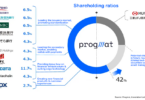On 13 November 2020, the Bank of Iwate said it is experimenting with IBM’s Blockchain platform for electronic contract verification using My Number cards (Kojin Bangō).
Introduced in 2015, the My Number card is Japan’s social security and taxation ID card. It includes a user name, address, date of birth, sex, and a number assigned to the individual. Iwate Bank combines the My Number card with blockchain technology to sign electronic contracts, initially experimenting with verifying corporate contacts. This solution doesn’t require managing digital certificates or IC cards, the pre-paid smart cards often used for rail and bus.
Apart from being tamperproof, blockchain technology was chosen because it enables the management of confidentiality and permissions and automates business flows. The two firms are looking for other banks and companies to join them. Development started this month and the trial is expected to fun from April to September 2021.
This isn’t the first use of the My Number card for blockchain solutions. In May this year, Japan’s Kaga City partnered with blockchain identity company xID and Trust Bank to create its blockchain-based LoGo (local government) Form Electronic Application. LoGo works with xID’s smartphone app and the My Number Card and is used by Kaga City residents to complete administrative procedures online.
Professional services firms EY and Accenture have both launched blockchain contract platforms focused on supplier procurement. EY recently unveiled its Ops Chain Network Procurement solution, aiming to turn complex supplier agreements into smart contracts. Accenture has been using a blockchain supplier procurement platform called the True Supplier Marketplace since early 2020.






